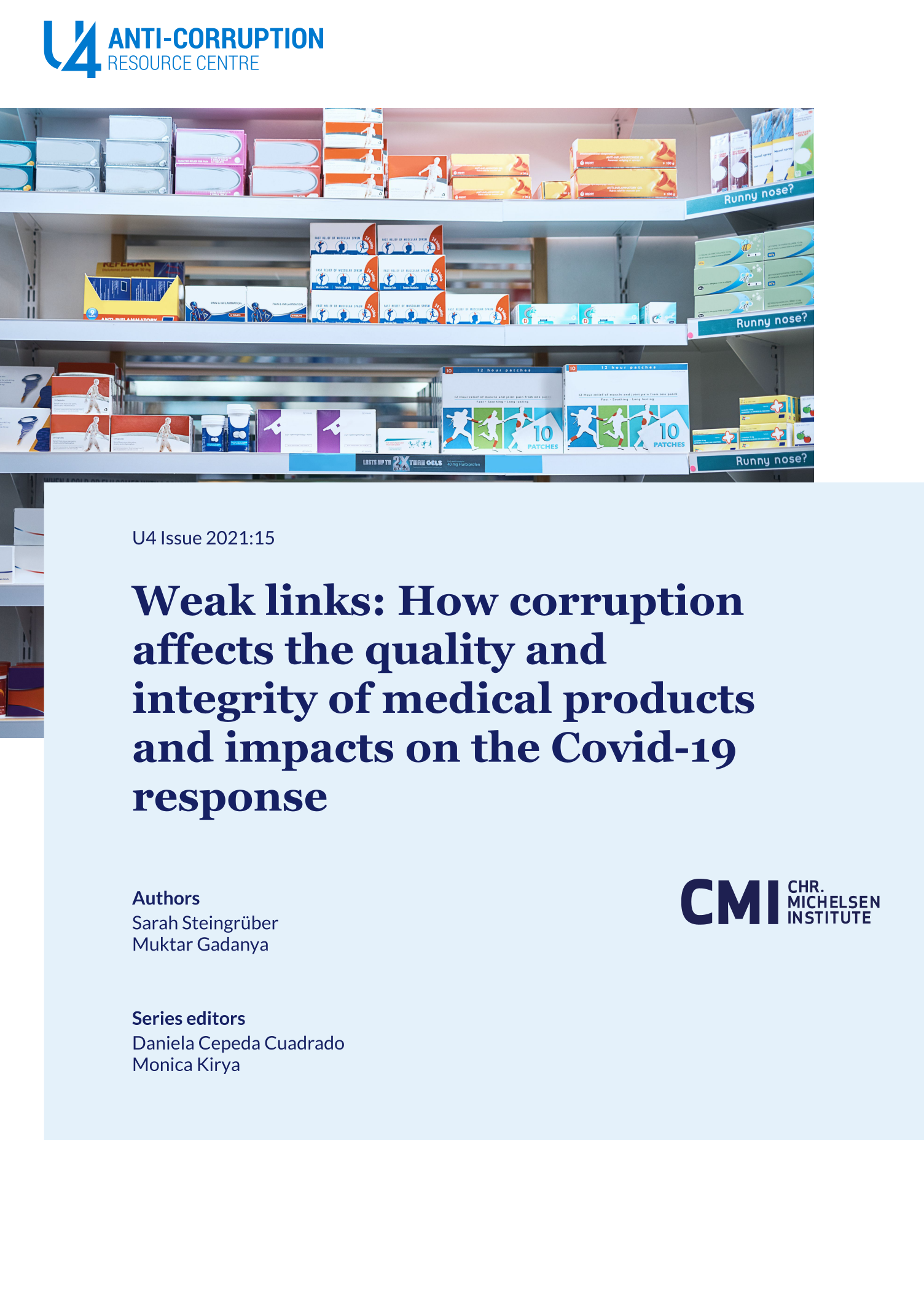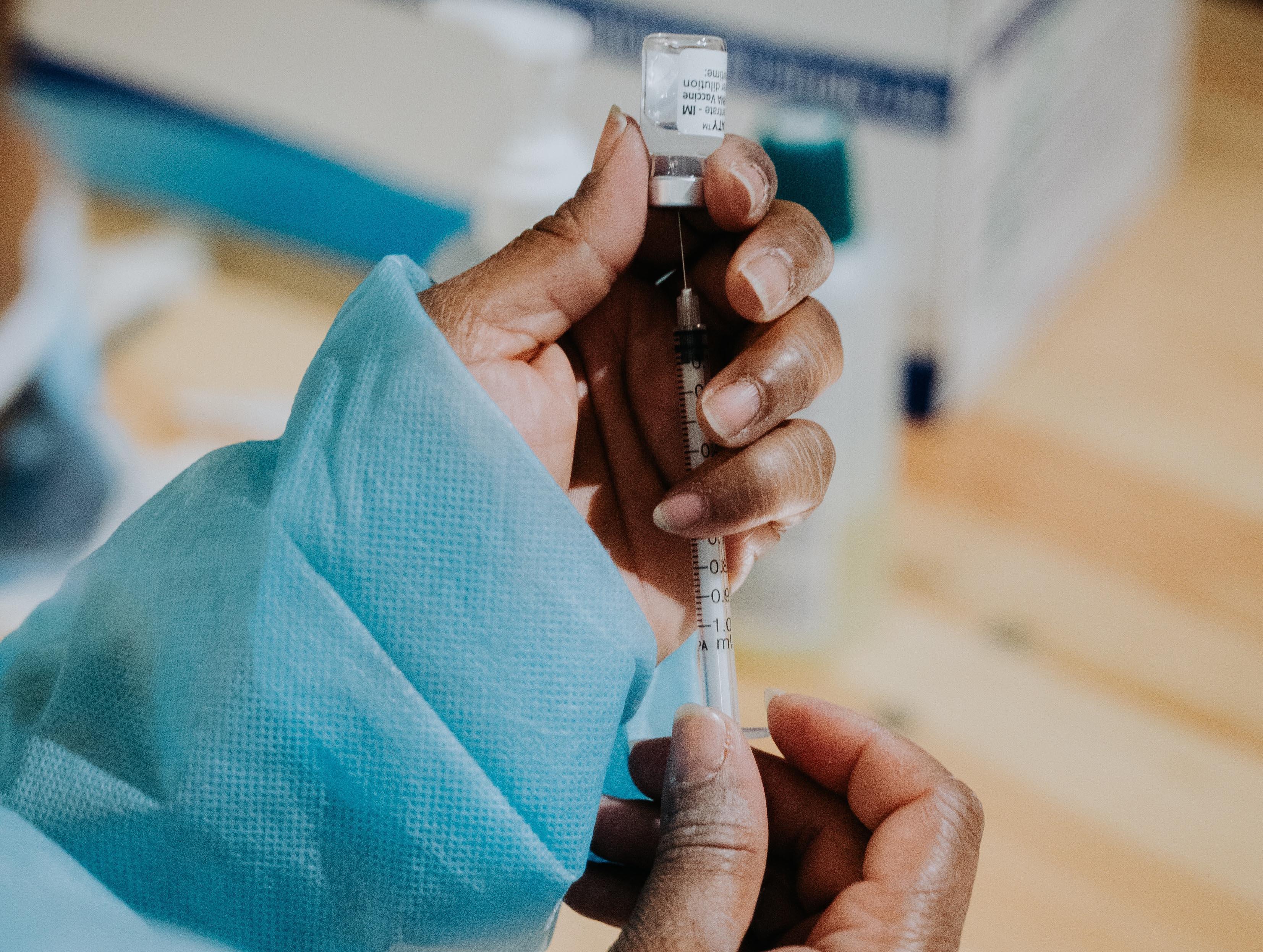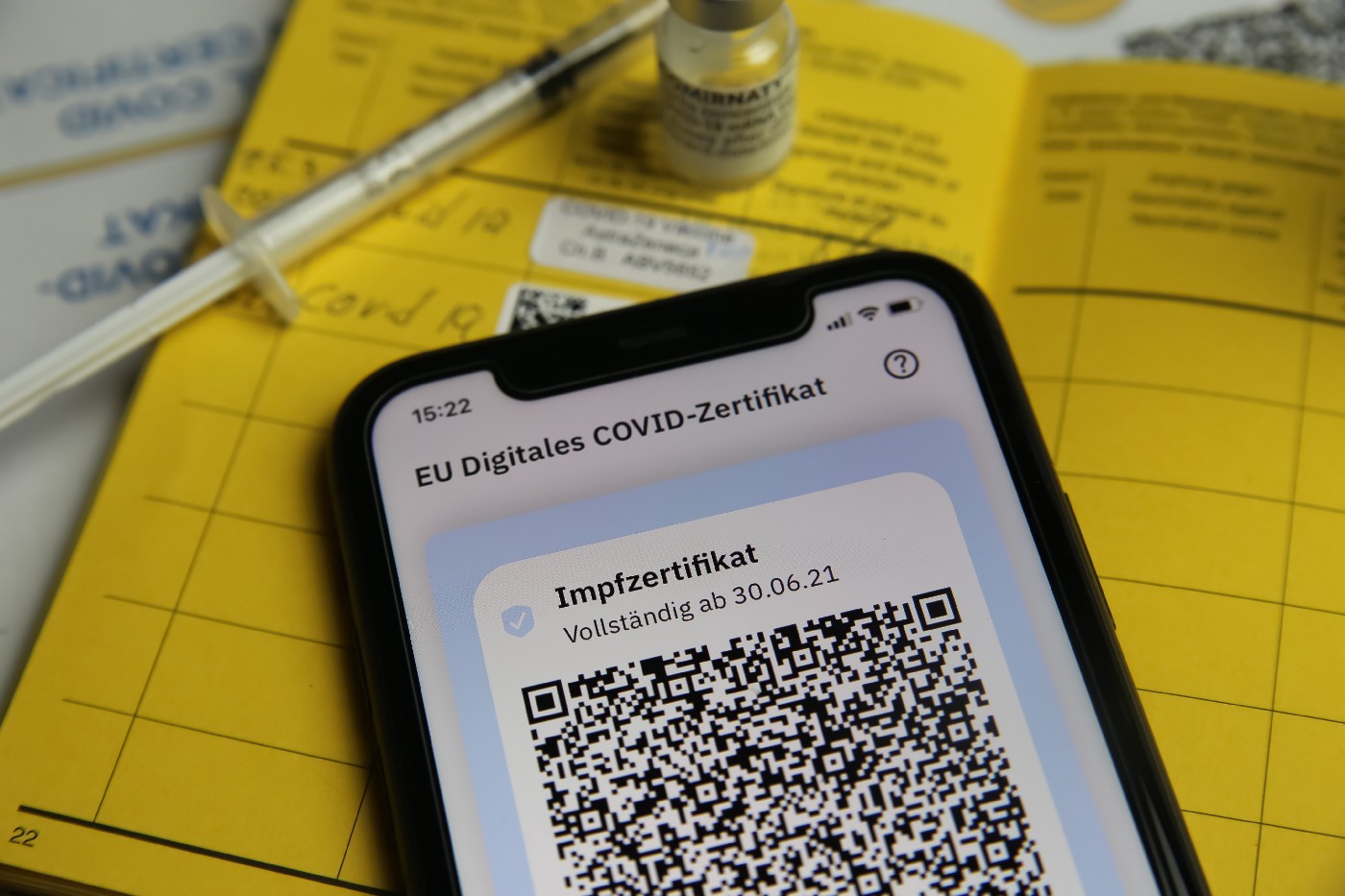Main points
- Only falsified medical products (FMPs) deliberately misrepresent product quality, so only those activities related to FMPs fall under the definition of corruption, and FMPs are the primary focus here.
- At the regulatory level, regulatory officials may collude with manufacturers and distributors by providing unwarranted certification or product approval or by delaying approval of competitors due to conflicts of interest or collusion with criminal suppliers.
- Procurement procedures that prioritise low prices may inadvertently increase the risk of poor quality or harmful products entering the system as manufacturers and distributors seek to maintain or increase their profit margins.
- Government officials may also become entwined in corrupt schemes through personal affiliations or interests with those who manufacture, distribute or sell inferior medical products.
- The healthcare workforce may engage in corruption that enables poor quality products to reach end users, particularly in contexts where healthcare worker salaries are low or not consistently paid.
- Prevention measures against FMPs include: (i) sharing product quality surveillance information with other regulatory agencies; (ii) implementing risk-based quality surveillance; and (iii) making use of tech-based strategies to remotely monitor medical product quality.
- Establishing an understanding of the strengths and weaknesses of cross-border coordination mechanisms should be included as part of an assessment to identify gaps and challenges to ensuring medical product quality, including the different quality assurance policies used in procurement.
- Public and donor funds need to be increased and sustainably allocated to support national and regional regulatory agencies in order to strengthen global protections against FMPs.
- Governments and development actors involved in supply chain integrity should sustainably support research into FMPs and the role of corruption in order to better understand their prevalence across geographies and income levels.
- National and regional legislation should be sufficiently punitive to deter FMPs, but should also be aligned with the need for cross-border and international participation, as well as emerging technological developments for improving medicines regulation and product quality.



